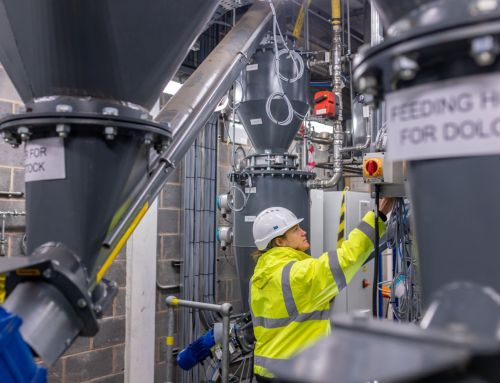ERA launches policy commission to assess the case for publicly owned energy
The Energy Research Accelerator is launching a policy commission investigating the case for a publicly owned energy company.

Nationalisation of energy is back on the agenda. The energy crisis has pushed millions more people into fuel poverty and many businesses to the brink of insolvency. The government has been forced to spend billions to subsidise soaring energy bills and to rescue energy suppliers from collapse.
This has led to many people questioning whether private companies should continue to control this vital service. Two thirds of people support nationalisation of energy and the number who do so strongly has almost doubled over the past three years to 37%. Campaigners point to France, where publicly-owned EDF has held price increases far lower than in the UK.
Several different proposals have now emerged for public control of various parts of the energy industry. The TUC and the Green Party propose nationalising the five big energy suppliers, for example, while the SNP has long advocated a publicly owned Scottish energy generator. More recently Sir Keir Starmer announced that Labour would create Great British Energy, a ‘publicly owned clean energy company’ which he says would ‘supercharge’ the transition to net zero.
Proponents argue that public ownership will, variously, reduce energy bills; strengthen energy security; support early-stage clean energy technologies like tidal or hydrogen; nurture domestic manufacturing and jobs; and keep profits in Britain rather than sending them abroad.
However, others believe that private ownership is not the root cause of the problem: Britain has built the largest and cheapest offshore wind capacity in the world based on private and often foreign capital. There is also the potential that an over reliance on public sector funding will negatively impact that from the private sector, and investment will go elsewhere.
The Energy Research Accelerator’s policy commission on ‘Assessing the Case for Public Ownership in Energy’ seeks to unpack this issue using expert international insight from across academia, industry and local and central government. It will explore the case for such a shift in the delivery of our energy system and the impact of public ownership of renewable energy projects in the UK on the economy, the climate and consumers.
The ERA Policy Commission will examine how such a shift would be implemented and how it would affect the established financing mechanisms and market conditions which to date have succeeded in delivering renewable projects in the UK.
The Energy Research Accelerator will be publishing the findings of the policy commission towards the end of 2023.
Professor Martin Freer, Director of the Energy Research Accelerator, said:
“Our Policy Commission Assessing the Case for Public Ownership in Energy is bringing together leading specialists and expert witnesses who can help us to understand the objectives and challenges of the energy transition and to shed light on where private ownership is a currently hindrance to progress.
“On the other side of the coin, we will specifically look at how a publicly owned body could improve matters, but equally we will examine the challenges of that would face such an entity, looking at international comparisons. We will also be exploring the important implications for jobs, training, private investment, public funding and regulation.”





